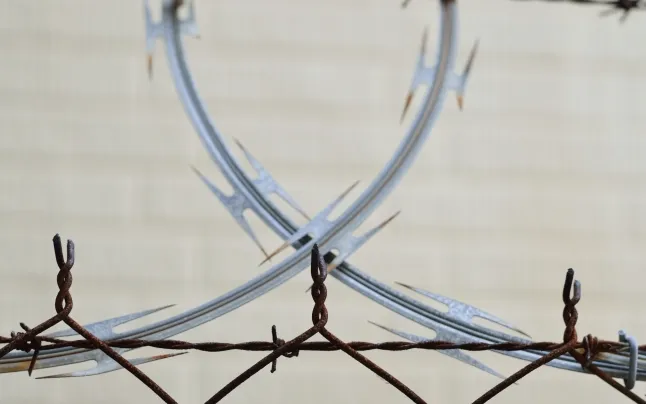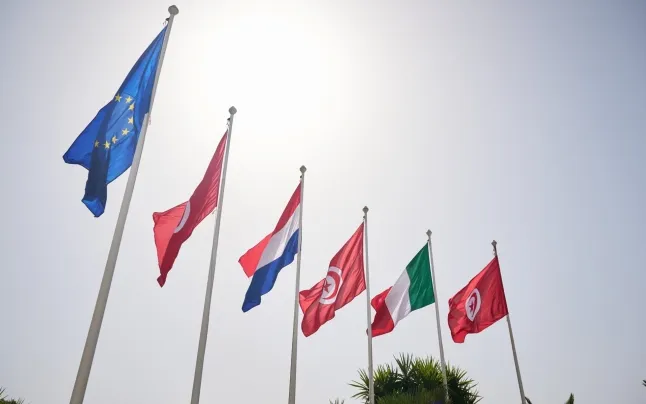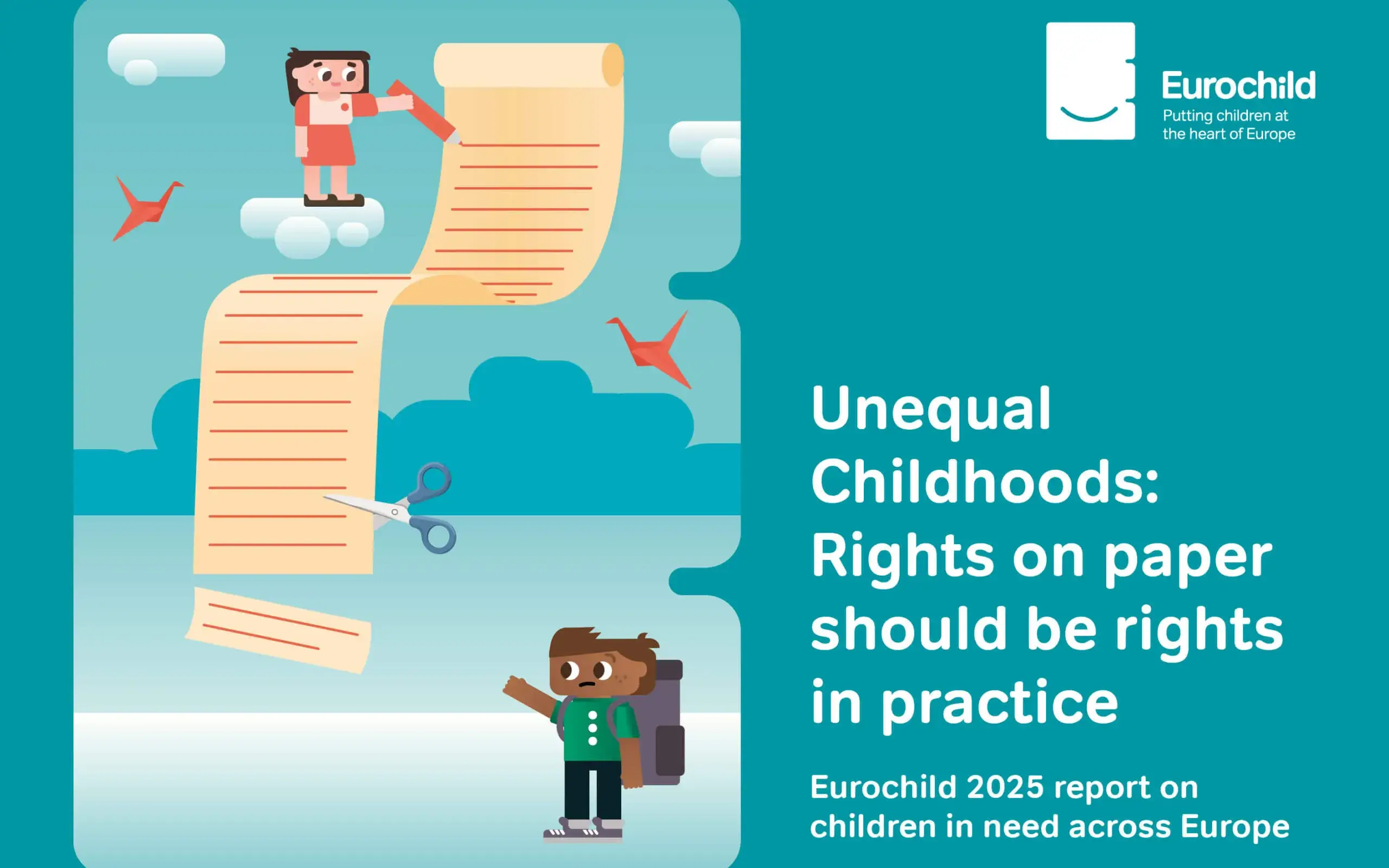Money in exchange for tightening migratory control: the agreement between the EU and Tunisia strengthens Fortress Europe
Human rights defender organizations criticize the Brussels pact and the Tunisian government for abandoning hundreds of sub-Saharan refugees at the borders with Libya and Algeria.
Without providing many details and with very few public explanations beyond a meager press release, the agreement signed by the European Union (EU) with Tunisia has reinforced this increasingly impenetrable and detrimental wall for the human rights of migrants and refugees, which is Fortress Europe.
One only needs to see how the Italian Prime Minister, the far-right Giorgia Meloni, has celebrated it. She has made the fight against immigration her main political banner and has been one of the main drivers of the pact, alongside the Prime Minister of the Netherlands, Mark Rutte, a political leader who brought down his coalition government in his country to harden the migration policy to the extreme.
The European troika - or 'Team Europe,' as it has been called - that certified this memorandum of understanding with Tunisia, has been completed by the President of the European Commission, Ursula von der Leyen. All three did not hesitate to appear with a satisfied smile next to Tunisia’s President, Kaïs Saïed, an autocrat with a serious history of complaints regarding the inhumane treatment he has given to migrants and refugees and the serious human rights violations he has perpetrated in migration policy matters.
An opaque agreement to further outsource and fortify the borders
Despite being signed behind closed doors, the scent it gives off strongly remembers the one that the EU signed with Turkey in March 2016, during the peak of the refugee influx towards Europe. That agreement stipulated that all individuals arriving irregularly on the Aegean islands would be returned to Turkey in exchange for economic incentives. In short: money in exchange for tightening migration control.
"It has been agreed that Tunisia will better protect its borders and address human trafficking in exchange for EU investments. These funds will be destined to improve the Tunisian economy," explained Rutte about the memorandum of understanding.
The same European delegation already traveled to Tunisia last June and offered Saïed over one billion euros to revive the Tunisian economy in some areas in exchange for the country preventing the crossing of migrant individuals to Europe. However, in the context of this latest agreement, there has been no mention of this economic package.
"It is another example of agreements between the EU and other countries such as Turkey, Morocco or Senegal, pacts which are aimed at externalising borders and paying other states to fulfil rights obligations that Europe doesn’t want to fulfil", says Adrián Vives, coordinator of political incidence and social participation of Comissió Catalana d’Acció pel Refugi (Catalan Comission for Refugee Action, CCAR).
In the same vein, Maria Creixell, coordinator of Obrim Fronteres, points out that the EU "pays countries that violate human rights to contain migration, whatever the cost, even if it involves human lives like in Melilla, or like the hundreds of people who have been abandoned in the middle of the Tunisian desert".
Tunisia: a regime in a full authoritarian drift that violates human rights
Tunisia is one of the main points of departure for migrant and refugee individuals crossing the Mediterranean to reach Europe. It is evident for everyone that the most substantial part of the agreement focuses on containing the migratory flow towards the European continent. According to the EU, in the words of Von der Leyen, everything will be done "respecting international law," although there hasn't been information on how Europe will ensure this is upheld, and there has been no mention of human rights at any moment.
This is not insignificant, given that Tunisian President, Kaïs Saïed, has accumulated a worrying history in this subject, and that his government has entered in an authoritarian drift, which has resulted in a regression of democratic reforms in the country, an assignment of attributions to his figure, and an intensification of repression against critics and the opposition. In fact, numerous international organisations have denounced this anti-democratic spiral of the African leader.
Saïed's action has been particularly serious in the field of migration policy. This has been highlight by entities such as Human Rights Watch (HRW), which has documented the expulsion of hundreds of sub-Saharan migrants, including pregnant women and children, in a desert area bordering Libya under inhumane conditions, without any form of assistance and subjected to episodes of violence by Tunisian authorities.
This shift in Saïed's thoughts became evident in a fiery speech he offered last February, in which he called on security forces to "put an end quickly to irregular immigration" and accused migrant individuals of being a "source of violence and criminality." These words were unequivocally racist, as several organizations described them, and they were interpreted as a manoeuvre to use migrants as scapegoats to divert attention from the crisis that the country is facing due to his management.
"Since this speech, racism has increased tremendously at institutional and social level, with attacks against migrant and refugee individuals by the population. Now in Tunisia, authorities are orchestrating persecutions against these individuals to leave them in the desert without water or food. That's why it's very concerning that the EU is making these kinds of agreements," regrets Vives.
Criticisms to the agreement from entities and institutions
For all these reasons, and even though the details of the agreement are not yet known, this memorandum of understanding between the EU and Tunisia has already sparked criticisms from entities and organizations defending human rights and the rights of refugees and migrants.
"Beyond the content of the agreement, which will surely be very concerning, it is intolerable for the EU to reach such agreements on migration and asylum issues with countries that have been proven by international organizations which systematically and seriously violate the human rights of migrant and refugee individuals passing through the country on their migration journey to Europe," points out Adrián Vives.
Judging by the statements of the Italian Prime Minister, Giorgia Meloni, this recently signed pact with Tunisia will not be the last the EU signs along the same lines. The far-right leader has already warned that "the work has just begun" and has defended the collaborative agreement as "a model to build new relationships with North Africa neighbours."
For that reason, Maria Creixell from Obrim Fronteres believes that the spirit of this understanding "is not new, but it also seems to be the path that the EU's New Pact on Migration and Asylum is taking: to either welcome or pay for others to welcome, to select who has the right to apply for asylum at the border or not," and she questions, "how much money is enough for a government that justifies violence against people from other countries to do the EU's job?"
The CCAR attributes this to the fact that "despite the EU talks a lot about the rights of refugees and how they protect them, the reality is that it has fully embraced the framework of the far-right on migration, a very concerning fact demonstrated by the signing of agreements like these, which violate people's rights and are applauded and even promoted, as is this case here, by the far-right."
Other organizations like Open Arms have also criticized the agreement with a country "that continues to leave alone thousands of women, men, and children in the desert, without water or food, and where violence, abuses, and human rights violations are becoming usual."
The activist and coordinator of Ca-minando Fronteras, Helena Maleno, summarized the agreement in a few words: "more deaths, more criminal networks, more disappearances, more pain. They know well where the business lies." In this sense, Creixell points out that this logic "creates business for those involved in border control and illicit human trafficking, and in return, it generates and will continue to generate more deaths."
Criticism of the memorandum of understanding has also come from European institutions, such as the Council of Europe. Dunja Mijatović, the Commissioner for Human Rights of the organization, has criticized the lack of references to human rights in the agreement with Tunisia and has emphasized "the need for clear safeguards of human rights in any future migration cooperation with Tunisia". She also highlighted the serious human rights violations against refugees and migrants that have occurred in the country.
"All this, while resources continue to be plundered from countries in the global South, while the effects of climate change worsen, and while legal and safe pathways, which may exist on paper, remain inaccessible in practice," says Creixell. She condemns the so-called Europe of human rights, which boasts of being modern and civilized, for "justifying and paying to protect itself from a supposed threat that the same companies and governments have generated, and no matter how many controls they impose, it will only result in more deaths."








Add new comment